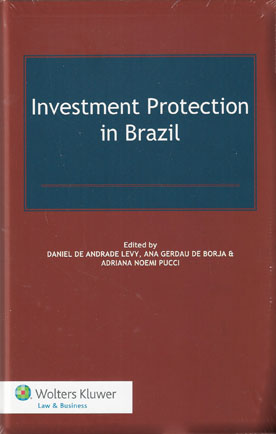
Although it has been ranked the fourth largest destination for foreign direct investment (FDI) in the world, Brazil has not enacted specific legislation to promote or protect FDI. Nor are there any investment treaties in force, so Brazilian companies investing abroad act without international legal protection.
Considering the country’s widely acclaimed “arrival” into the small family of the world’s major trading nations, the question of Brazil’s entry in the international FDI system – not only as an incentive to the inflow of foreign investment, but also to protect the investments of its national companies abroad – has become a hotly debated issue.
This timely book, with its incisive reports on all important aspects of the matter, tackle this subject with prodigious knowledge and insight. With detailed analysis of investment-related legislation, including different legal and regulatory models, as well the examination of peculiarities of highly specialized industries present in Brazil, the authors cover such aspects as the following:-
Showing unambiguously that Brazil in fact enjoys a stable legal system which grants foreign direct investment the same material and procedural rights as national direct investment, the contributors to this book provide a truly informative and useful guide for those who work with law and policy in international investment.